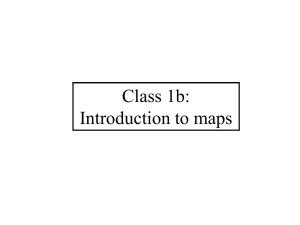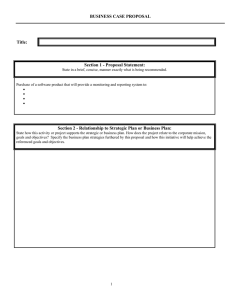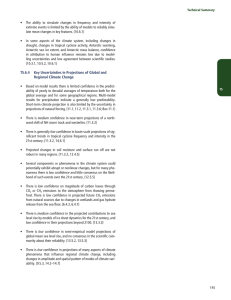Business Plan Outline
advertisement
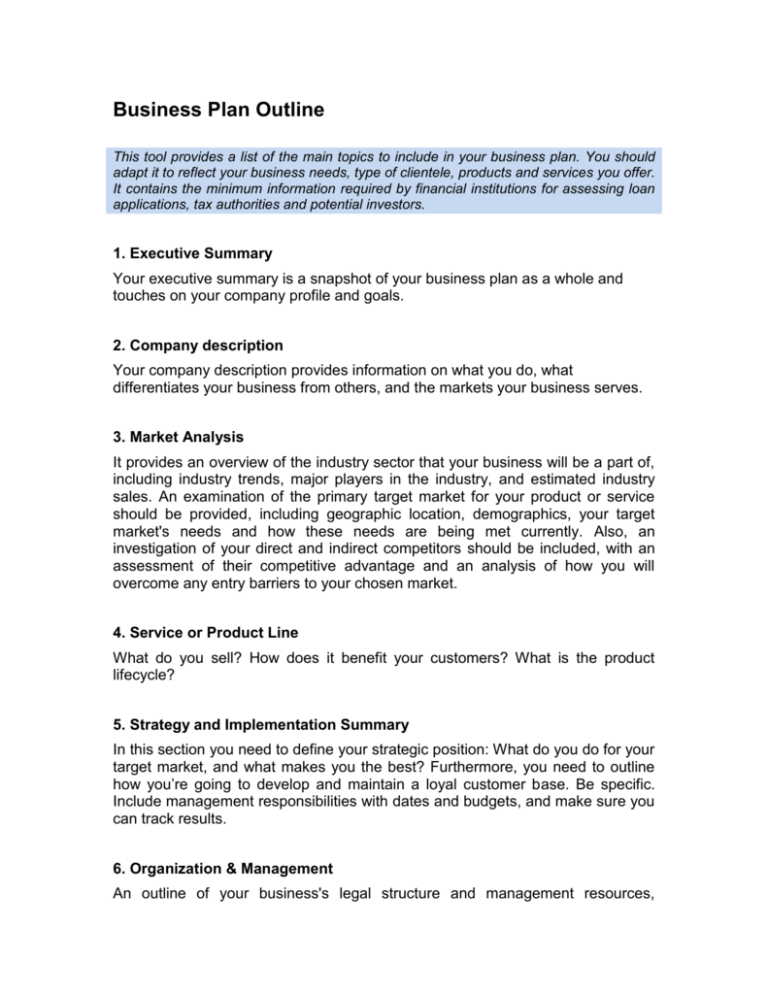
Business Plan Outline This tool provides a list of the main topics to include in your business plan. You should adapt it to reflect your business needs, type of clientele, products and services you offer. It contains the minimum information required by financial institutions for assessing loan applications, tax authorities and potential investors. 1. Executive Summary Your executive summary is a snapshot of your business plan as a whole and touches on your company profile and goals. 2. Company description Your company description provides information on what you do, what differentiates your business from others, and the markets your business serves. 3. Market Analysis It provides an overview of the industry sector that your business will be a part of, including industry trends, major players in the industry, and estimated industry sales. An examination of the primary target market for your product or service should be provided, including geographic location, demographics, your target market's needs and how these needs are being met currently. Also, an investigation of your direct and indirect competitors should be included, with an assessment of their competitive advantage and an analysis of how you will overcome any entry barriers to your chosen market. 4. Service or Product Line What do you sell? How does it benefit your customers? What is the product lifecycle? 5. Strategy and Implementation Summary In this section you need to define your strategic position: What do you do for your target market, and what makes you the best? Furthermore, you need to outline how you’re going to develop and maintain a loyal customer base. Be specific. Include management responsibilities with dates and budgets, and make sure you can track results. 6. Organization & Management An outline of your business's legal structure and management resources, including your internal management team, external management resources, and human resources needs. Include summaries of your managers’ backgrounds and experience—these should act like brief resumes—and describe their functions with the company. 7. Operational plan A description of your business's physical location, facilities and equipment, kinds of employees needed, inventory requirements and suppliers, and any other applicable operating details, such as a description of the manufacturing process. 8. Marketing & Sales How do you plan to market your business? What is your sales strategy? Include a detailed explanation of your sales strategy, pricing plan, proposed advertising and promotion activities, and product or services benefits. 10. Financial Projections If you need funding, providing financial projections to back up your request is critical. Find out what information you need to include in your financial projections for your small business. At the very least this section should include your projected income statement and cash flow, and a brief description of the assumptions you’re making with your projections. You may also want to include your balance sheet, your sales forecasts, business ratios and break-even analysis.

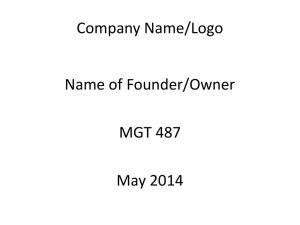
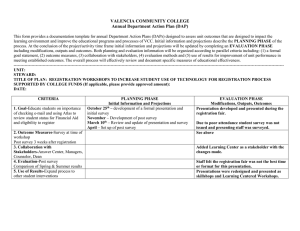
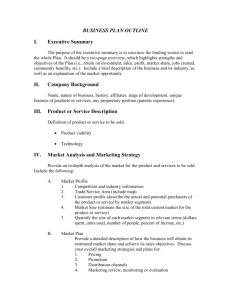
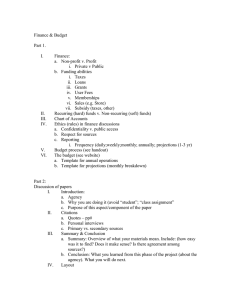
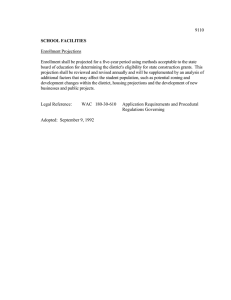
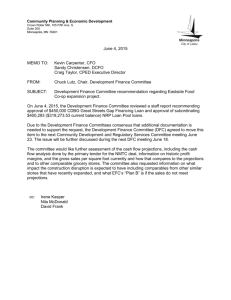
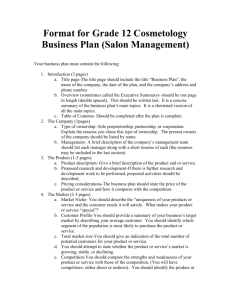
![Business Plan For [Name of Company]](http://s2.studylib.net/store/data/011852131_1-c6db48fd4664dbf31e100676f0cad119-300x300.png)
